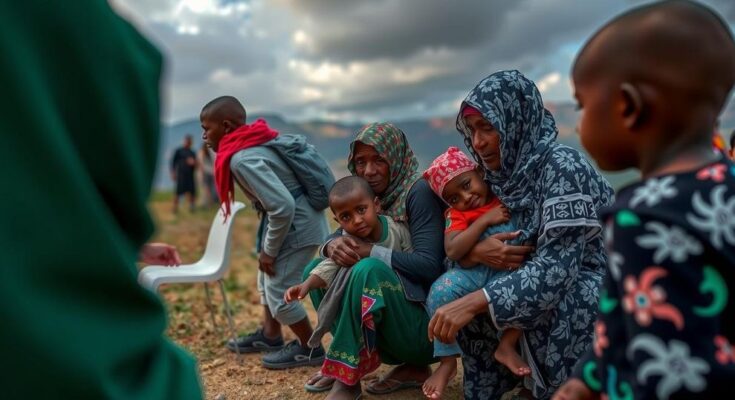Kenya has confirmed that it captured and repatriated four Turkish refugees following a request from Turkey, with assurances from Ankara regarding their treatment. However, Amnesty International has condemned this action as a violation of refugee rights, highlighting concerns about the safety of refugees in Kenya.
Kenya has confirmed the repatriation of four Turkish refugees following a request by the Turkish government. This confirmation was made on Monday by Korir Sing’oei, the Principal Secretary of Foreign Affairs, who stated that Turkey assured the proper treatment of its nationals in accordance with both domestic and international laws. The individuals, identified as Alparslan Taşçı, Mustafa Genç, Huseyin Yesilsa, and Öztürk Uzun, were flown from Nairobi on Friday after residing in Kenya as refugees. Dr. Sing’oei emphasized the long-standing historical and strategic relationship between Kenya and Turkey as the basis for this action. He also assured that the Kenyan government is dedicated to maintaining the confidentiality of the repatriated individuals and will withhold further commentary until the ongoing inter-agency review is concluded. Furthermore, Dr. Sing’oei reiterated Kenya’s commitment to the rights and welfare of the over 780,000 refugees currently residing in the country. In contrast, the actions taken by the Kenyan government have incited condemnation from Amnesty International, which has described the incident as a violation of Kenyan and international refugee laws. The organization expressed concern regarding the safety of all refugees in Kenya, highlighting the risk of forced repatriation faced by the four individuals, which is in breach of established non-refoulement principles. Yasin Yakut, a director of a local institution, also raised alarms about the dangers facing the refugees, noting their protected status under United Nations guidelines. The case was reported as an abduction to the Kileleshwa Police Station on Friday by a concerned individual named Yusuf Kar.
The repatriation of refugees has become a contentious issue in Kenya, particularly pertaining to the treatment of individuals fleeing persecution from their home countries. With a significant number of refugees residing in Kenya, international legal frameworks, such as the 1951 Refugee Convention and the African Union Convention, mandate the protection of such individuals. The bilateral relations between Kenya and Turkey have influenced the recent governmental actions regarding repatriation. This incident highlights a potential conflict between national interests and international legal obligations.
The repatriation of four Turkish refugees by Kenya at the behest of the Turkish government has raised significant concerns regarding both legal and human rights implications. While Kenyan officials assert their commitment to the welfare of refugees, organizations such as Amnesty International warn of breaches of international law and the risks of human rights violations. The situation underscores the delicate balance that must be maintained between diplomatic relations and the protection of refugee rights in host countries.
Original Source: nation.africa




